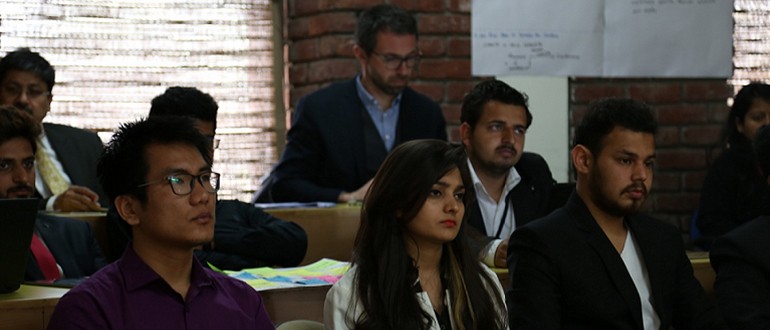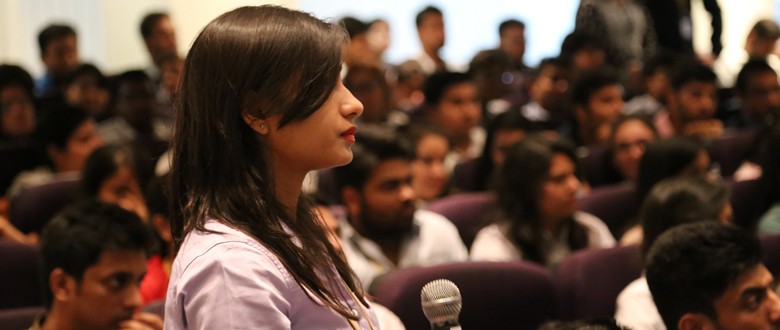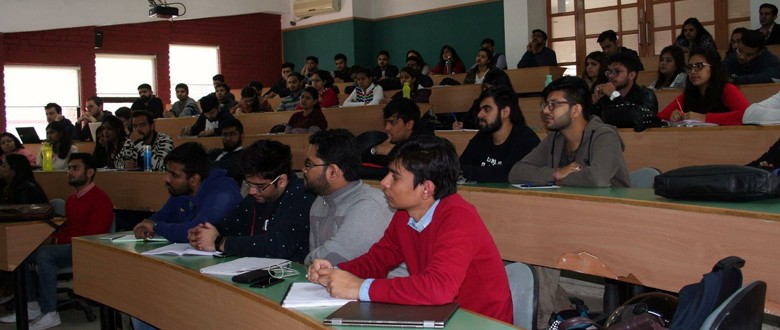Tell me and I forget.
Teach me and I remember.
Involve me and I Learn.
These lines by Benjamin Franklin have rightly pointed out the gap in our education system. The traditional model of teaching i.e. lecturing would only help students to remember the concepts that have been discussed in class. The effectiveness of the learning process exists only when the students are fully engrossed in the subject. With the availability of electronic gadgets and the internet, the attention span of students has been reducing day by day. In such a scenario, an effective teaching tool that can be used for the business management students is Case-Based Teaching. The concept of case-based teaching is not only found in the management subjects but also found in courses like law, medicine, science, etc. The idea is to make the students understand a real-world problem that needs to be solved with the application of the concepts that the student has learned in the class.
Benefits of Case-based Teaching:
According to Professor Chris Ronald Christensen of Harvard Business School, the case-based teaching classes unfold without a detailed script. This is because the case is relatively unknown to the student, and the discussion that may take place in the class in the context of the case is unknown to the teacher. Many experienced faculty members say that the same case study brings out different learning for the students each time it is discussed with a batch of students. The classroom becomes an open platform for discussion that helps each student to come up with their idea and understanding of the case.
Efforts required in Case-based teaching:
Many faculty members have been using case-based teaching as a part of their teaching pedagogy. This is also practiced in many leading universities like Oxford, Stanford, and Cambridge, etc. The faculty in these institutes believe that the core concept of the case study as well as the course content has to be discussed simultaneously. This requires rigorous preparation on behalf of the faculty. The challenge lies in the ability of the faculty to make the students connect the theory with the practical case study and create ‘teachable moments’ in the process. These teachable moments arise from the classroom discussions and it is the responsibility of the faculty to guide the students through the discussion as well as give the discussion a desired direction. Thus, case-based teaching is a way of discovering the concept in a new manner. It requires the faculty to learn the art of balancing the discussion, planning the direction and also being versatile with strong and powerful storytelling skills.
Teaching cases online:
The current pandemic has created a new normal which includes online teaching. Teachers of all age groups, across the world, had to switch quickly to the online mode of teaching. This was not an easy task to do but then the change was quickly adapted to by faculty members so that the on-going semester could be completed successfully. In this context, the task of case-based teaching became more challenging. One of the major hurdles that the faculty faces while teaching through cases is that not all students read the whole case study and not all students read the case study before they attend the class. This became an even bigger issue to address when the classes shifted online.
To address this issue, the faculty of IILM had to be more proactive and plan the session in small segments. The cases that were taken up for discussion had to be smaller and crisper. Short case-lets are best suited for online case discussions. The questions had to be deep. Taking the advantage of technology, the students were made to discuss among themselves in small groups i.e. break-out groups where the faculty would visit just like it would be done in a physical classroom. The faculty also had to design more short exercises like polls and engage the students in a better manner. An effective way of doing this was by sharing reading material with the students before the class, beginning the class with a recent example, and sharing the faculty’s screen with students so that they can participate actively and share insights. This is followed by a quiz or a small test so that the students can assess their understanding. It can, therefore, be said that undoubtedly case-based teaching is one of the most effective ways of teaching but it will have to be modified with the change in times.
Importance of Case-based Teaching:
Case-based teaching and learning are important as pedagogy as it helps in developing the lifelong skills of critical thinking, collaboration i.e. working in groups, open inquiry, communicating ideas, and thoughts along with subject knowledge to arrive at a solution. Students also like this aspect and are engaged and interested in case discussions. It is a time-tested way of teaching that has been implemented successfully in various courses and institutions. It is an ideal win-win situation for both the faculty as well as the students. On one hand, the faculty can engage the students and also drive home the necessary concepts, the students can apply their knowledge and learn effectively. Thus, the time has come to implement the case-based teaching and learning pedagogy, with a little bit of revamping.
Do comment / write to me on how do you think Case-Based teaching will evolve in the blended learning format.








